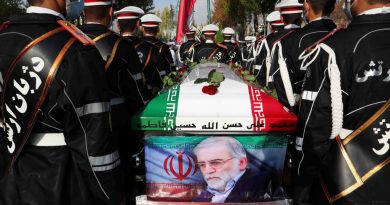OPINION: Hajj exuded Saudi Arabia’s unwavering commitment in serving pilgrims
By Afreen Baig and Zahack Tanvir
Saudi Arabia has demonstrated remarkable empathy in ensuring that pilgrims fulfill their spiritual obligations with utmost tranquility and devotion.
The Hajj, which takes place during the Islamic month of Dhu al-Hijjah, is an annual Islamic pilgrimage to Mecca, Saudi Arabia, and is considered one of the five pillars of Islam. It is mandatory for every able-bodied and financially capable Muslim to undertake this pilgrimage at least once in their lifetime. More than two million Muslims from all over the world gather in Mecca each year to fulfill this religious obligation.
The Kingdom of Saudi Arabia has a long and proud tradition of hosting Hajj and embracing pilgrims from all over the world, who embark on Hajj to commemorate the trials of Prophet Abraham who built the holy house of Kaba, and his willingness to sacrifice his son in response to God’s command. The Hajj is a symbol of pure monotheism.
King Salman proclaimed, “I and my predecessors, my brothers, the sons of King Abdul Aziz, are always honored to be the custodians of the Two Holy mosques. We and our people are always honored to serve the two holy mosques. Thanks to Allah, our country enjoys security”.
The ambitions of King Salman and Crown Prince Mohammed Bin Salman mirror the Kingdom’s profound commitment in fulfilling its sacred duty of serving the revered guests of God.
It has always been the responsibility of Saudi Arabia to manage the Hajj and ensure that the pilgrimage is carried out smoothly and safely. In recent years, the Saudi government has heavily invested in the development of Hajj facilities and infrastructure to provide pilgrims with a comfortable and secure experience.
Hajj Concludes Extraordinarily with Success
The Hajj-2023 has been a resounding success, with the number of pilgrims reaching 1,845,045 of whom 1,660,915 were international pilgrims and 184,130 domestic pilgrims.
The Crown Prince MBS affirmed, “We will continue – with the help of God – to exert efforts and mobilize resources to facilitate the performance of Hajj every year”.
A historic transformation is taking place in the Hajj system, under the directives of His Royal Highness the Crown Prince. The Ministry of Hajj and Umrah introduced E-Visas to facilitate Hajj and Umrah through the “Nusuk Hajj” platform, and the Saudi Data and Artificial Intelligence (SDAI) offers the “Banan” service to verify the identities of the pilgrims through biometric information.
The Saudi Ministry of Media introduced the Virtual Press Center for the 2023 Hajj, to ensure smooth media coverage to 900+ registered local and global media professionals. 17 million educational text messages were broadcasted by The Authority of Islamic Affairs to guide the guests of God.
143 educational materials were displayed on 186 interactive screens in 16 languages. The Islamic affairs provided 9 cabins and 100 awareness screens only in the Arafat area.
Saudi Arabia has demonstrated remarkable empathy in ensuring that pilgrims fulfill their spiritual obligations with utmost tranquility and devotion.
Over 37 government entities were present to provide services to pilgrims. According to the Ministry of Health, 32 hospitals and 140 health centers were fully functional serving the pilgrims, with a hospital bed capacity of 6,132,761.
There were 32,000 health practitioners on duty, with over 400,000 pilgrims receiving health assistance. Over 50 open heart surgeries were performed successfully, 1600 dialysis sessions were held, 8000 heat stroke cases were treated, 100,000 umbrellas were distributed and over 4000 pilgrims received virtual medical services – all FREE of cost – upon directives of King Salman Bin Abdul Aziz.
The Custodian of the Two Holy Mosques King Salman Al-Saud granted a gift of Hajj to 1300 pilgrims from over 90 countries, and ensured to pay the expenses of sacrificial animals of 4951 pilgrims. “Hadiyah” provided over 5 million meals to pilgrims in the Grand Mosque, and over 73 million food items were distributed by the Ministry of Commerce in Arafat and Muzdalifah. The Saudi Hajj Ministry helped 450 people with disabilities and orphans to perform Hajj – free of cost.
Pilgrims were transported from Arafat to Muzdalifah through more than 11 designated routes, utilizing 20,000 buses. Over 300,000 pilgrims were transported using the Al-Mashaaer Metro. The Al-Mashaaer Metro had the capacity to transport 2M+ pilgrims with 2000+ trips alone in this 2023 Hajj season. 10,000 carts were available to serve pilgrims.
Saudi Arabia’s remarkable achievement includes the completion of the $7.87 billion Haramain Railway, an impressive transportation project that spans a distance of 450km, connecting the holy cities of Mecca and Medina to the Red Sea city of Jeddah.
According to the Saudi Ministry of Communications there were 15,000 cell towers and 100,000 Wi-Fi access points available for Hajj pilgrims in 2023. This was an increase of 50% from the previous year, with 2000 technicians deployed to maintain the network. An average of 3.97K TB of data was used daily, nearly 2 times the global average per capita consumption.
The Saudi National Water Company pumped and supplied 78.5 million cubic meters of water during Hajj 2023 for drinking, ablution and other purposes.
This boundless generosity, unwavering determination and exceptional implementation demonstrated by the Saudi Kingdom in facilitating the Hajj pilgrimage have left an indelible mark of excellence. As a result of these benevolent investments and historic initiatives, the Hajj has become safer, pleasant and more comfortable for pilgrims.
The Kingdom has ensured the diligent development of The Grand Mosque and Prophet’s Mosque by carrying out several expansions over the years. The expansion is a complex and challenging process, but the Saudi government has successfully executed these expansions in a delicate, respectful and considerate manner. It has invested over $100 billion in infrastructure for Hajj since 2015.
Their visionary leadership has ensured the seamless implementation of infrastructure projects, from expensive expansions of the Grand Mosque to the construction of state-of-the-art facilities, providing pilgrims with unparalleled comfort and convenience.
The Grand Mosque in Makkah sprawls upon an area of 356,000 square meters. It can accommodate up to 2.5 million people today. Whereas in 1932, the mosque accommodated around 100,000 people and stood at an area of 9000 square meters.
Saudi Arabia has expanded the total area of the Prophet’s Mosque by 2400% since 1932. The original area of the mosque was only 16,000 square meters, but it has now been expanded to 400,000 square meters. It now has the capacity to accommodate 1.5 million worshippers, from the 17,000 in 1932.
18 escalators, 13 minarets, and 263 umbrellas were installed during the development of the Two Holy Mosques by the Saudi governments.
In the 1920s, the Hajj pilgrimage witnessed a humble voyage, with less than 60,000 pilgrims undertaking the sacred journey. However, over the past 54 years Saudi Arabia has witnessed an annual gathering of 1.8 million faithful performing Hajj. A remarkable testament to its role as the host, the Kingdom has welcomed a staggering 99 million pilgrims during the last 54 years.
Use of Artificial Intelligence (AI)
In 2021, Saudi Arabia introduced a new “Smart Hajj” system to enhance the pilgrimage’s efficiency and reduce congestion. This system included the use of electronic bracelets for pilgrims, containing personal and medical information and a real-time location tracker. This allowed the authorities to monitor the movement of pilgrims and ensure their safety and accountability at all times.
Apart from the smart Hajj system, Saudi Arabia has invested heavily in Artificial Intelligence (AI). The use of AI in Masjid al Haram during Hajj has enabled the Saudi government to manage the massive crowds of pilgrims more efficiently.
For instance, the Kingdom has implemented an AI-powered crowd management system that can track the movement of pilgrims within the mosque and surrounding areas. This system uses real-time data to predict the flow of crowds, identify congestion points, and provide information to authorities to manage the crowds effectively.
The Saudi government has introduced AI-powered translation services for non-Arabic speaking pilgrims, which is particularly helpful for those seeking to understand religious teachings.
The translation system uses AI technology to translate the Imam’s sermons and other religious speeches in real-time into various languages, such as English, French, Urdu, and Malay.
Additionally, the use of AI in Masjid al Haram during Hajj has improved security measures for pilgrims. The government has implemented an AI-powered surveillance system that utilises facial recognition technology to identify individuals who may pose a security risk.
The system can also track the movements of individuals within the mosque and surrounding areas, enabling authorities to monitor any suspicious activity and ensure the safety of all pilgrims.
Moreover, to improve the cleaning process of the Grand Holy Mosque in Makkah, Saudi Arabia has implemented Artificial Intelligence-enabled machines. These robots are capable of absorbing dust within the mosque, sweeping carpets, and cleaning stairs, escalators, and floors.
This initiative is part of the Saudi government’s efforts to utilize AI technology to enhance the service of the Two Holy Mosques and their visitors. The AI-powered robots have been introduced to streamline the cleaning process and ensure that the Grand Holy Mosque is maintained to the highest standards of cleanliness.
By implementing AI mechanisms, the Saudi government is taking a significant step towards modernizing the maintenance and cleaning processes of the Grand Holy Mosque in Makkah.
This not only ensures a more efficient and effective cleaning process but also helps to maintain the mosque’s cleanliness and hygienic standards, providing a more comfortable and safe environment for visitors.
Overall, the deployment of AI-enabled machines to clean the Grand Holy Mosque in Makkah is an important step towards utilizing technology to improve the service of the Two Holy Mosques and their visitors.
Conclusion
The Saudi Kings’ steadfast commitment to facilitating the Hajj pilgrimage in an exceptional manner showcases their profound devotion to Islam and their compassion towards the worldwide Muslim community.
King Salman bin Abdul Aziz said, “We draw inspiration from Hajj, embracing the meanings of mutual support, brotherhood, and unity”.
Saudi Arabia’s progress in enhancing the facilities and infrastructure for the Hajj pilgrimage while prioritizing the safety and comfort of the pilgrims is commendable. With the continued implementation of new technologies and investments in infrastructure, the Hajj experience is expected to become even more efficient and enjoyable for pilgrims in the coming years.
Afreen Baig is a regular writer on contemporary issues of the Middle-East and the Arab World, for UK-based the Milli Chronicle. She is Master of Philosophy in Public Administration.
Zahack Tanvir is an international writer and counter-terrorism expert. He writes mainly on Indo-Arab relations. He holds a Masters degree in Artificial Intelligence from the UK.



